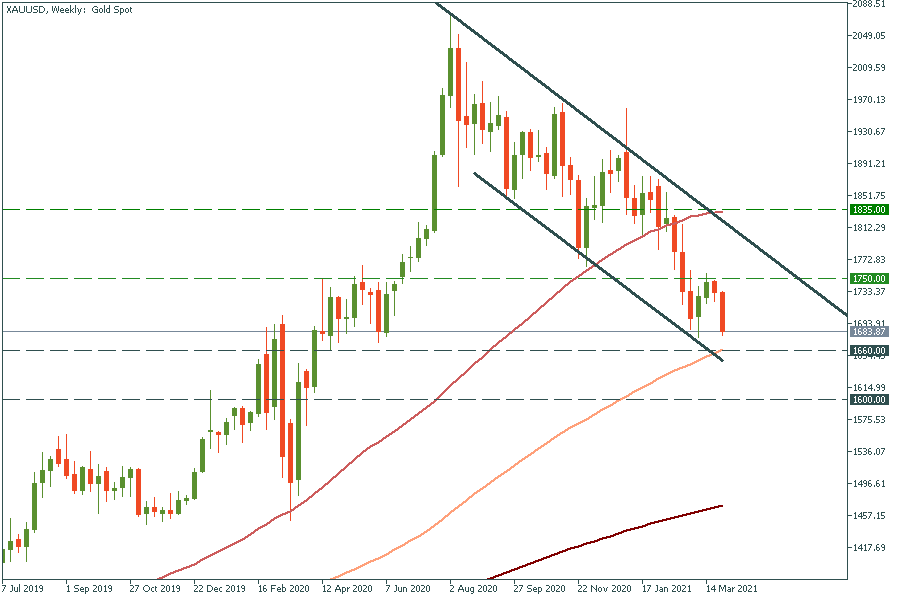Trading Accounts
Trading Conditions
Financials
CFD Trading instruments

Don’t waste your time – keep track of how NFP affects the US dollar!
The ASIC policy prohibits us from providing services to clients in your region. Are you already registered with FBS and want to continue working in your Personal area?
Personal areaGold is heading for its first quarterly decline since 2018! The main reason for that is the strong US dollar, driven up by rising US treasury yields and Biden’s big spending plans. On Monday, US 10-year Treasury yields surged to the highest level unseen since last January, when the coronavirus has just started. It was caused by the overall market optimism over the successful US vaccine rollout as the US President claimed that 90% of US adult Americans would be able to get a vaccine by April 19. Moreover, on Wednesday, the president is expected to reveal his plans for a $3tn infrastructure package, which follows the recent $1.9tn fiscal stimulus bill. All that pushed gold down below $1700.
Gold’s sell-off will continue further. First of all, gold tends to fall in time of market recovery and growth. Secondly, higher US Treasury yields increase the US dollar’s appeal and in opposite decrease the attractiveness of non-yielding gold for investors. According to ABN Amro NV, “support zone at $1650-$1670 an ounce will probably be tested” and then it may even fall to $1600. Indeed, after gold broke the key psychological mark of $1700 nobody doubts that the downtrend will continue.
Gold is moving down inside the descending channel. It may meet the support at the 100-weekly moving average of $1660. It’s unlikely to break it on the first try, but if it finally manages to cross it, the way to the psychological mark of $1600 will be clear. On the flip side, if it reverses from $1660 and moves up, it will meet the resistance of $1750 at the March highs.
